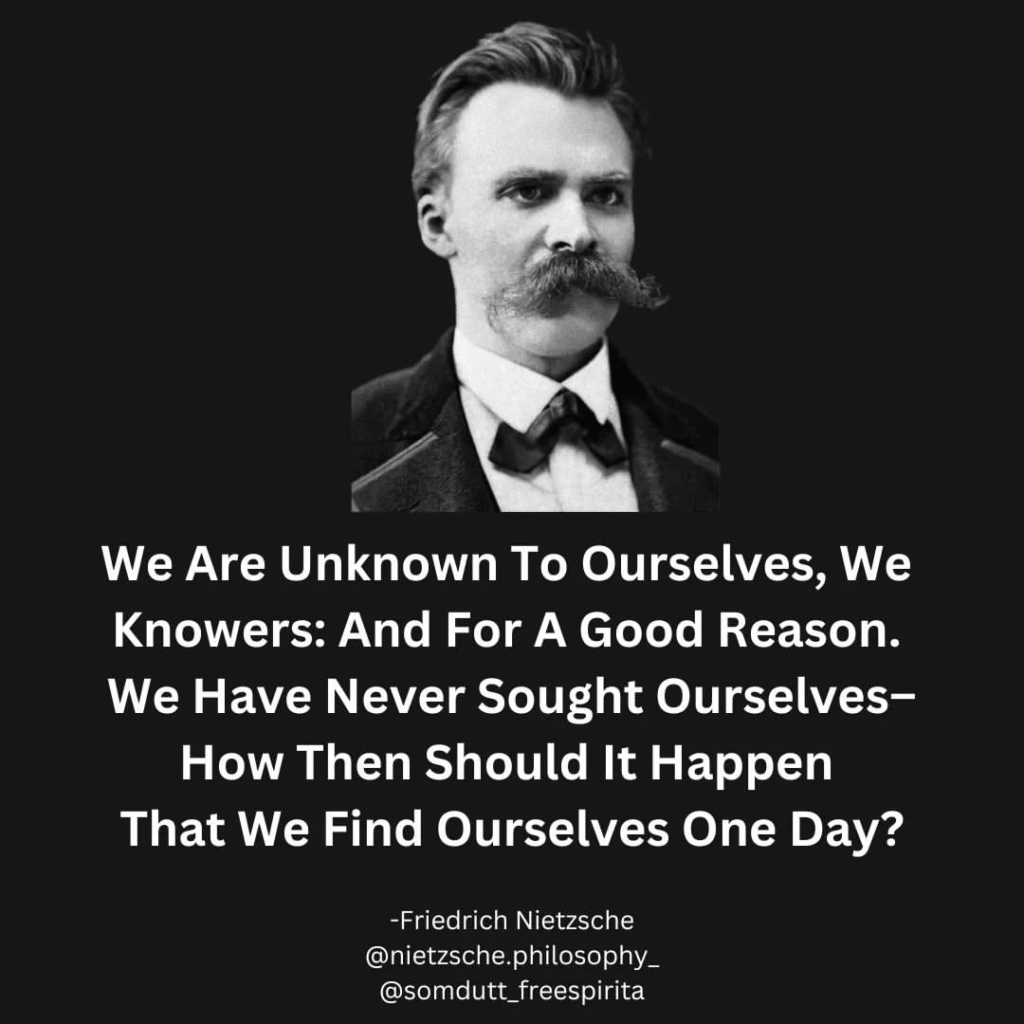Last updated on December 18th, 2024 at 05:36 am
- Introduction
- Why Mediocrity and Mental Illness Hold Us Back
- The Trap of Mediocrity
- The Impact of Mental Illness
- Strategies to Break Free from Mediocrity
- 1. Set Clear, Inspiring Goals
- 2. Embrace Growth and Learning
- 3. Take Smart Risks
- 4. Surround Yourself with Excellence
- 5. Practice Relentless Self-Improvement
- 6. Find Your Purpose and Passion
- Overcoming Mental Illness: Your Path to Healing
- Seek Professional Help
- Build a Strong Support Network
- Practice Self-Care and Stress Management
- Develop Healthy Coping Skills
- Challenge Negative Thinking
- Set Small, Achievable Goals
- Be Patient and Compassionate with Yourself
- Inspiring Stories of Transformation
- Sarah’s Journey: From Struggling Artist to Thriving Entrepreneur
- John’s Story: Breaking Free from Depression and Mediocrity
- Maria’s Triumph: Overcoming Anxiety to Live Her Best Life
- Breaking Mental Health Stigmas
- Thriving Beyond Mediocrity: Creating Your Best Life
- Your Next Steps: Taking Action
- NLP Techniques for Self-Improvement
- Reframing Negative Thoughts
- Developing Emotional Intelligence
- Regulating Emotional Responses
- Visualization Techniques for Success
- NLP Therapy in Everyday Life
- Mastering Negotiation and Communication Effectiveness
- Building Rapport and Non-Verbal Cues
- Embracing Resilience and Managing Stress
- Overcoming Self-Doubt with Positive Self-Talk
- Effective Goal Visualization and Achieving Goals
- SMART Goals and Personal Growth
- Overcoming Challenges with Empowerment Strategies
- Emotional Triggers and Behavior Change
- Managing Anxiety and Reducing Stress
- NLP for Social Skills Development
- Cultivating Confidence and Building Mental Resilience
- Boosting Self-Esteem with Positive Affirmations
- Effective Influence Techniques for Breaking Negative Patterns
- Anchoring Positive Emotions for Mindset Change
- Practical Strategies for Managing Anxiety Triggers
- Overcoming Challenges in Personal and Professional Life
- Effective Goal Achievement and Business Success
- Business Development Using NLP Techniques
- Personal Development Through NLP-Based Empowerment Strategies
- Harnessing Visualization Power for Achieving Goals
- Cultivating Empathy and Improving Relationships
- NLP Therapy for Social Skills Improvement
- Practical NLP Applications in Personal Life
- Overcoming Self-Sabotage Through NLP Techniques
- Emotional Intelligence Development for Professional Growth
- Building Mental Resilience for Business Success
- Empowering Beliefs and Behavior Change
- Mastering Inner Dialogue for Life of Excellence
- Overcoming Social Anxiety Using NLP
- Personal Development Through Visualization Techniques
- Managing Emotions for Professional Success
- Daily Rituals for Self-Improvement
- NLP Practitioner Certification for Professional Growth
- Conclusion: Your Journey to an Extraordinary Life
- Frequently Asked Questions
- How Can NLP Techniques Help in Breaking Free from Mediocrity?
- What Are Effective Strategies for Overcoming Mental Illness?
- How Does Reprogramming Thoughts Lead to Overcoming Challenges?
- How Can Visualization Techniques Improve Mental Health?
- What Are Some Resilience Building Techniques to Overcome Setbacks?
- How Does Developing Emotional Intelligence Support Personal Growth?
- How Can Goal Setting Help Break Free from Mediocrity?
- How Does Cultivating a Growth Mindset Help in Overcoming Mental Illness?
- What Are the Benefits of Self-Reflection in Personal Development?
- How Can Reframing Negative Thoughts Improve Relationships?
- What Techniques Help in Breaking Negative Behavioral Patterns?
- How Can Self-Compassion Aid in Overcoming Mental Challenges?
- How Does Enhancing Communication Skills Aid in Professional Growth?
- What Is the Role of Anchoring Techniques in Emotional Regulation?
- How Does Mindfulness Practice Support Mental Health Improvement?
- How Can Positive Mindset Practices Break the Status Quo?
- What Are Effective Stress Relief Techniques for Improving Mental Wellness?
- How Can Self-Awareness Help in Overcoming Emotional Triggers?
- How Can NLP Therapy Aid in Managing Anxiety?
- How Can One Develop a Positive Self-Talk Routine to Improve Confidence?
In a world that often glorifies exceptional achievements and unparalleled success, the struggle against mediocrity can feel overwhelming. For many, this battle is further complicated by the presence of mental health challenges, creating a formidable obstacle course on the path to personal growth and fulfillment.
However, the journey from surviving to thriving is not only possible but also essential for reclaiming joy and purpose in life. Let’s discuss how you can transform your life by overcoming mental illness with strategies for breaking free from mediocrity.
Introduction
According to the National Alliance on Mental Illness (NAMI), approximately 1 in 5 U.S. adults experience mental illness each year. This statistic underscores the widespread nature of mental health challenges and the urgent need for effective strategies to overcome them. The intersection of mental illness and the pursuit of excellence creates a unique set of challenges that require both compassion and determination to address.
One of the most insidious forms of mental distress that can contribute to feelings of mediocrity is the aftermath of narcissistic abuse. Reclaiming joy after narcissistic abuse is a crucial step in breaking free from the cycle of self-doubt and underachievement. Survivors often grapple with invisible wounds that can manifest as PTSD from narcissistic abuse, further complicating their journey towards self-actualization.
The process of overcoming mediocrity and mental illness often begins with rebuilding one’s sense of self-worth. For those who have endured toxic relationships, rebuilding self-esteem after years with a narcissistic partner is not just beneficial—it’s essential. This rebuilding process serves as the foundation for all future growth and achievement.
A study published in the Journal of Counseling Psychology found that individuals who engaged in self-compassion practices showed significant improvements in mental health outcomes and overall life satisfaction. This research highlights the importance of treating oneself with kindness and understanding, especially when facing the dual challenges of mental illness and perceived mediocrity.
Breaking free from mediocrity requires a multifaceted approach that addresses both external circumstances and internal mindsets. It involves setting ambitious yet achievable goals, developing resilience in the face of setbacks, and cultivating a growth mindset that views challenges as opportunities for learning and development.
For those dealing with mental health issues, this process may also include seeking professional help, developing coping strategies, and building a support network.
Another critical aspect of this journey is rediscovering yourself after the storm of narcissistic abuse or other forms of mental distress. This process of self-discovery can be both challenging and liberating, requiring individuals to confront their deepest fears and aspirations. It’s through this introspective work that many find the courage to pursue their true passions and break free from the constraints of mediocrity.
The path from mediocrity to excellence, especially when complicated by mental illness, is rarely linear. It often involves periods of progress followed by setbacks, moments of clarity obscured by bouts of self-doubt.
However, it’s important to recognize that this journey is not about achieving perfection but about continuous growth and self-improvement. Each step forward, no matter how small, is a victory against the forces of stagnation and despair.
Why Mediocrity and Mental Illness Hold Us Back
Living an average life can leave us feeling unfulfilled and restless. Mental health issues make everything harder, from relationships to work to basic daily tasks. But these challenges don’t have to define us. With the right tools and mindset, we can rise above them.
The Trap of Mediocrity
Mediocrity sneaks up on us. We get comfortable, stop taking risks, and settle for “good enough.” Before we know it, we’re stuck in a boring job, unfulfilling relationships, and a life that doesn’t excite us. The spark that once drove us fades away.
Some signs you may be trapped in mediocrity include:
- Feeling bored and unchallenged most days
- Avoiding risks and new experiences
- Lacking passion or purpose in your work and hobbies
- Settling for “good enough” instead of striving for greatness
- Resisting change and clinging to old routines
If these sound familiar, don’t worry. Recognizing the problem is the first step to fixing it.


The Impact of Mental Illness
Mental health challenges can make life feel like an uphill battle. They drain our energy, cloud our thinking, and make it hard to function. Common ways mental illness affects daily life include:
- Emotional turmoil – Feeling sad, anxious, or hopeless for long periods
- Relationship strain – Pulling away from loved ones or having more conflicts
- Poor focus – Trouble concentrating at work or school
- Low energy – Struggling to complete basic tasks or self-care
- Physical symptoms – Changes in sleep, appetite, and overall health
Mental illness impacts every area of life. But with proper treatment and support, recovery is possible. You can learn to manage symptoms and thrive.
Strategies to Break Free from Mediocrity
Ready to level up your life? Here are key ways to break out of mediocrity and reach your full potential:
1. Set Clear, Inspiring Goals
Vague wishes won’t cut it. You need clear, specific goals that excite you. Ask yourself:
- What do I really want in life?
- What would make me jump out of bed excited each morning?
- Where do I want to be in 1 year? 5 years? 10 years?
Write down your answers. Make your goals vivid and compelling. Break big goals into smaller steps you can tackle. Having a clear target pulls you forward.
2. Embrace Growth and Learning
A growth mindset is key to breaking free from mediocrity. Believe you can learn, improve, and overcome challenges. Some ways to cultivate growth:
- Read books on topics that interest and challenge you
- Take classes to build new skills
- Seek feedback and learn from criticism
- Try new experiences that push you out of your comfort zone
- Reframe setbacks as learning opportunities
The more you grow, the more you’ll achieve. Never stop learning and improving.
3. Take Smart Risks
Playing it safe keeps us stuck. To break free, you need to take some risks. But not reckless ones – calculated risks that stretch you.
For example:
- Apply for that job you think is a reach
- Start the side business you’ve been dreaming of
- Have that difficult conversation you’ve been avoiding
- Travel somewhere new and adventurous
Each time you face a fear, you grow stronger. Build your risk-taking muscle gradually.


4. Surround Yourself with Excellence
We become like the people we spend time with. To rise above mediocrity, connect with people who inspire you. Seek out mentors, join mastermind groups, network with high achievers.
At the same time, limit time with negative influences. People who drag you down or encourage settling will hold you back.
5. Practice Relentless Self-Improvement
Make personal growth a daily habit. Even small improvements add up over time. Try things like:
- Journaling to increase self-awareness
- Meditating to build focus and clarity
- Exercising to boost energy and confidence
- Learning a new skill for 30 minutes each day
Consistent self-improvement creates momentum. You’ll be amazed how far you can go.
6. Find Your Purpose and Passion
Living with purpose pulls us out of mediocrity. Reflect on questions like:
- What matters most to me?
- How can I use my strengths to help others?
- What would I do if money were no object?
Let your values and passions guide your choices. When you’re aligned with your purpose, you’ll feel energized to pursue excellence.


Overcoming Mental Illness: Your Path to Healing
Mental illness can feel overwhelming. But recovery is possible with the right support and tools. Here are key steps to overcome mental health challenges:
Seek Professional Help
Working with mental health experts is crucial. They can provide:
- Proper diagnosis and treatment planning
- Therapy to process emotions and build coping skills
- Medication management if needed
Don’t try to tackle mental illness alone. Reach out for help – it’s a sign of strength, not weakness. Find a therapist you connect with and trust the process.
Build a Strong Support Network
Surround yourself with understanding people who lift you up. This may include:
- Supportive family and friends
- Support groups for your specific challenges
- Online communities of people with similar experiences
Share your struggles and celebrate your progress with your support network. Connection and compassion aid healing.
Practice Self-Care and Stress Management
Taking care of your body and mind is essential for mental health. Prioritize:
- Getting enough sleep (7-9 hours for most adults)
- Eating nutritious meals
- Exercising regularly
- Relaxation techniques like deep breathing or meditation
- Engaging in enjoyable hobbies and activities
Self-care isn’t selfish – it’s necessary. You can’t pour from an empty cup.



Develop Healthy Coping Skills
Learning to manage difficult emotions in healthy ways is key. Some helpful coping strategies:
- Journaling to process thoughts and feelings
- Creative outlets like art or music
- Mindfulness and grounding techniques
- Progressive muscle relaxation
- Talking to a trusted friend
Experiment to find what works for you. Having a toolbox of coping skills prepares you for challenges.
Challenge Negative Thinking
Mental illness often involves distorted, negative thought patterns. Learn to recognize and reframe them. Cognitive behavioral therapy (CBT) can be very helpful for this.
Some common thought distortions to watch for:
- All-or-nothing thinking
- Overgeneralizing
- Catastrophizing
- Should statements
- Personalization
Replacing these with more balanced, realistic thoughts improves mood and resilience.
Set Small, Achievable Goals
When struggling with mental illness, even basic tasks can feel overwhelming. Break things down into tiny steps. Set small daily goals you can accomplish.
For example:
- Take a 5-minute walk
- Do one load of laundry
- Call a friend for 10 minutes
Celebrate each win, no matter how small. This builds confidence and momentum.
Be Patient and Compassionate with Yourself
Recovery isn’t linear. There will be setbacks and hard days. Treat yourself with the same kindness you’d show a loved one who’s struggling.
Avoid harsh self-criticism. Remind yourself that you’re doing your best. Every step forward, no matter how small, is progress.



Inspiring Stories of Transformation
Real people have overcome mediocrity and mental illness to create amazing lives. Their stories show what’s possible with dedication and the right support.
Sarah’s Journey: From Struggling Artist to Thriving Entrepreneur
Sarah dreamed of being an artist, but fear held her back. She worked a boring office job she hated, painting on weekends. Anxiety and self-doubt plagued her.
One day, Sarah decided enough was enough. She started therapy to work through her anxiety. She set a goal to sell one painting a month. It was scary, but she pushed herself to share her art online and at local markets.
Slowly, Sarah built a following. She experimented with new techniques and styles. As her confidence grew, so did her sales. Within two years, she quit her day job to pursue art full-time.
Today, Sarah runs a thriving online art business. She’s happier and more fulfilled than ever. “I still have anxious days,” she says. “But now I know how to manage them. I’m living my dream, and it feels amazing.”
John’s Story: Breaking Free from Depression and Mediocrity
John felt stuck in every area of his life. His job bored him, but he was too depressed to look for something better. He rarely saw friends and had given up on dating. Each day blended into the next.
John’s turning point came when a coworker noticed his struggle and gently suggested he talk to someone. John started therapy and was diagnosed with depression. It was hard work, but he committed to treatment.
As John’s mood improved, he set small goals. He joined a hiking club to meet new people. He took an online course in web design, a longtime interest. These small wins boosted his confidence.
Within a year, John landed a new job as a junior web developer. He started dating again and rekindled old friendships. “Life isn’t perfect,” John says, “but it’s so much richer now. I actually look forward to the future.”
Maria’s Triumph: Overcoming Anxiety to Live Her Best Life
Anxiety ruled Maria’s world. She avoided social situations, turned down promotions at work, and lived in constant fear. Panic attacks left her feeling helpless and alone.
Maria finally reached out for help after a particularly bad panic attack. She found a therapist specializing in anxiety disorders. Through cognitive behavioral therapy and medication, Maria learned to manage her symptoms.
It wasn’t easy, but Maria pushed herself to face her fears. She joined Toastmasters to overcome her fear of public speaking. She traveled solo for the first time. Each small victory built her courage.
Today, Maria is a confident public speaker and world traveler. She mentors others with anxiety. “I still get anxious sometimes,” she says. “But it no longer controls me. I’ve created a life I love.”
These stories show that change is possible. With courage, support, and persistence, you can overcome any obstacle.


Breaking Mental Health Stigmas
One major barrier to seeking help is the stigma around mental illness. Many people feel ashamed or weak for struggling. This needs to change.
Mental illness is a health condition, not a character flaw. Just like diabetes or heart disease, it requires proper treatment. We need to talk openly about mental health to break down stigma.
Some ways to fight mental health stigma:
- Share your own mental health journey if you feel comfortable
- Correct misconceptions when you hear them
- Use person-first language (e.g. “person with schizophrenia” not “schizophrenic”)
- Support organizations that promote mental health awareness
- Be a compassionate listener when others share their struggles
The more we normalize mental health discussions, the easier it becomes for people to seek help. Together, we can create a more understanding society.
Thriving Beyond Mediocrity: Creating Your Best Life
Breaking free from mediocrity and overcoming mental illness opens up incredible possibilities. When you’re no longer held back by fear, self-doubt, or symptoms, you can truly soar.
Here’s what thriving beyond mediocrity can look like:
- Pursuing work that excites and fulfills you
- Building deep, meaningful relationships
- Taking on challenges that stretch and inspire you
- Making a positive impact in your community
- Feeling confident and at peace with yourself
- Embracing new adventures and experiences
- Living aligned with your values and purpose
This level of thriving doesn’t happen overnight. It’s a journey of continuous growth and self-discovery. But each step forward builds momentum.
Some key habits of people who thrive:
- Practicing gratitude daily
- Setting and pursuing meaningful goals
- Prioritizing physical and mental health
- Nurturing supportive relationships
- Embracing lifelong learning
- Giving back to others
- Reflecting on and celebrating progress
Your Next Steps: Taking Action
Reading about change isn’t enough – you need to take action. Here are some concrete next steps to start your journey:
- Reflect on where you feel stuck or unfulfilled. Write down specific areas you want to improve.
- Set 1-3 clear, inspiring goals for the next 3 months. Make them challenging but achievable.
- Identify one small risk you can take this week to stretch yourself.
- Reach out to a trusted friend or family member for support. Share your goals and ask them to check in on your progress.
- If you’re struggling with mental health, make an appointment with a therapist or doctor. Taking that first step is huge.
- Start a daily gratitude and reflection practice. Even 5 minutes a day can shift your mindset.
- Choose one area of self-care to focus on this week – sleep, exercise, nutrition, or stress management.
- Find an inspirational book, podcast, or course to dive into. Feed your mind with positive input.
Remember, progress isn’t always linear. There will be setbacks and hard days. But keep pushing forward. You have greatness within you waiting to be unleashed.
NLP Techniques for Self-Improvement
NLP techniques for self-improvement can be pivotal in breaking free from mediocrity and overcoming mental illness. Practices such as anchoring techniques and reprogramming thoughts help in reshaping our inner dialogue to foster empowerment strategies.
Millions of people have successfully embraced these methods to cultivate a growth mindset and boost self-awareness.
Reframing Negative Thoughts
Reframing negative thoughts using NLP for mental health can be an effective strategy to overcome self-doubt. By replacing limiting beliefs with empowering beliefs, individuals can embrace resilience and navigate through emotional challenges.
Reframing thoughts allows individuals to shift their perspective. This shift can lead to positive outcomes and mental growth.
Developing Emotional Intelligence
Developing emotional intelligence is essential for improving relationships and enhancing communication skills. Emotional intelligence development helps in managing stress effectively and recognizing emotional triggers that lead to self-sabotage.
It also contributes to building rapport and cultivating empathy. These qualities are crucial for overcoming social anxiety.
Regulating Emotional Responses
Resilience building involves regulating emotional responses and practicing mindfulness techniques. Strategies such as daily visualization practice and active listening can help individuals develop a positive mindset.
Breaking negative patterns in the daily routine can also support emotional resilience. Consistent regulation of emotions leads to significant personal growth.
Visualization Techniques for Success
Harnessing visualization power is another critical method for achieving goals and breaking comfort zones. Visualization for success, combined with SMART goals, can lead to effective goal achievement and self-improvement.
Daily rituals like success visualization and affirmations play a significant role in building mental resilience. Fostering self-belief through visualization encourages a proactive attitude.


NLP Therapy in Everyday Life
NLP therapy offers practical NLP applications that can be integrated into daily routines for personal growth. NLP in everyday life includes adopting new habits, mastering self-talk, and reprogramming subconscious thought patterns.
This form of behavior modification helps in cultivating a positive mindset. It is essential for transforming one’s personal and professional life.
Mastering Negotiation and Communication Effectiveness
Mastering negotiation involves NLP-based personal growth and communication effectiveness. Effective negotiation skills are vital in both personal and business settings.
These skills allow individuals to foster a collaborative mindset. They help overcome challenges like market share barriers or dealing with negative people.
Building Rapport and Non-Verbal Cues
Non-verbal cues are key to building rapport in business and personal settings. Enhancing communication skills through active listening and understanding non-verbal cues allows for effective influence.
Fostering a collaborative mindset can enhance relationships. Successful people understand the value of these subtle cues to enhance connections.
Embracing Resilience and Managing Stress
Embracing resilience requires using stress relief techniques like deep breathing exercises to cope with anxiety triggers. Managing anxiety triggers effectively ensures that feelings of hopelessness do not become obstacles to achieving mental wellness.
Engaging in mindfulness practices such as deep breathing exercises helps in regulating stress responses. Practicing these techniques regularly is crucial for sustained mental well-being.
Overcoming Self-Doubt with Positive Self-Talk
Positive self-talk is an integral part of overcoming self-doubt. NLP techniques like anchoring positive emotions can help in cultivating a sense of self-worth.
Consistent action through positive affirmations helps build confidence. It serves as a stepping stone to achieving a life of excellence.
Effective Goal Visualization and Achieving Goals
Effective goal visualization can transform the mindset required for success. By focusing on realistic goals and breaking them down into manageable pieces, individuals can achieve progress.
Visualization techniques, combined with effective habit formation, play a key role in overcoming stagnation. Each small achievement builds on the next, leading to meaningful progress.


SMART Goals and Personal Growth
Setting SMART goals aids in cultivating a growth mindset, especially when faced with limiting beliefs. It ensures manageable steps are taken, leading to continual personal growth.
Fresh insights are gained through each phase of the self-improvement journey. Personal development strategies are critical for breaking free from mediocrity.
Overcoming Challenges with Empowerment Strategies
To overcome challenges effectively, empowerment strategies and embracing positive change are necessary. NLP elegance training offers symbolic systems for subconscious reprogramming.
These empowerment strategies facilitate lasting personal growth. They help in eliminating limiting behaviors and making informed decisions.
Emotional Triggers and Behavior Change
Understanding emotional triggers is crucial for successful behavior change. Introspection and self-reflection allow individuals to identify what holds them back.
This identification enables a transformation from limiting behavior to constructive actions. The practice of introspection fosters self-belief, ultimately leading to growth.
Managing Anxiety and Reducing Stress
Managing anxiety effectively requires a combination of NLP techniques and traditional anxiety management tools. These include stress reduction methods like mindfulness practices.
Relaxation exercises promote cardiovascular health and lower the risk of stroke. Consistent mindfulness helps individuals build resilience to overcome challenges.
NLP for Social Skills Development
Social skills development can be enhanced by applying NLP techniques in practical settings. NLP helps in breaking free from comfort zones and fostering a collaborative mindset.
Mastering inner dialogue is important for better social interactions. Building rapport through effective techniques can improve personal and professional relationships.
Cultivating Confidence and Building Mental Resilience
Cultivating confidence is essential for personal and professional success. NLP-based personal growth helps in reprogramming subconscious thoughts.
This reprogramming boosts self-esteem and breaks the status quo. Techniques such as symbolic systems and effective habit formation contribute to building resilience.


Boosting Self-Esteem with Positive Affirmations
Positive affirmations are a powerful tool for fostering self-belief. Through consistent practice, individuals can replace limiting beliefs with empowering ones.
Affirmations promote personal growth and empowerment. They are crucial for achieving dreams and breaking free from mediocrity.
Effective Influence Techniques for Breaking Negative Patterns
Breaking negative patterns is essential to achieve a meaningful life. Effective influence techniques, such as mastering negotiation, aid in mindset transformation.
Eliminating limiting behavior through influence techniques fosters growth. This transformation builds a collaborative and empowered personal growth journey.
Anchoring Positive Emotions for Mindset Change
Anchoring positive emotions helps in reprogramming thoughts. Embracing resilience becomes easier with anchoring techniques.
Fostering a positive mindset allows individuals to move away from limiting beliefs. This shift creates new opportunities for success.
Practical Strategies for Managing Anxiety Triggers
Managing anxiety triggers requires both mental health strategies and NLP-based tools. Anxiety management tools, such as symbolic systems, allow individuals to process emotions effectively.
Deep breathing exercises and stress relief techniques are essential for boosting resilience. Practicing these techniques consistently enhances mental strength.
Overcoming Challenges in Personal and Professional Life
Overcoming challenges requires effective habit formation. Developing emotional intelligence aids in making informed decisions.
Empowering beliefs can help overcome obstacles in personal and professional growth. Success visualization and goal setting are key tools for achieving progress.
Effective Goal Achievement and Business Success
Effective goal achievement is essential for personal and professional growth. Setting and achieving SMART goals enhances productivity during business days.
Embracing NLP techniques helps business owners maximize opportunities for success. These strategies foster a proactive and empowered approach.


Business Development Using NLP Techniques
NLP techniques provide a fresh perspective for overcoming business challenges. Expert marketing consultants utilize NLP-based content marketing for effective influence.
Informed decision-making helps in breaking market trends and achieving success. These tools improve online sales performance and ensure business package success.
Personal Development Through NLP-Based Empowerment Strategies
Personal development is enhanced through NLP-based empowerment strategies. Techniques like building rapport and effective communication foster a collaborative mindset.
Creating outcome statements and adopting new habits helps embrace life transformation. These practices are vital for achieving personal excellence.
Harnessing Visualization Power for Achieving Goals
Harnessing visualization power is essential for cultivating a growth mindset. Daily visualization practice leads to meaningful progress.
Such strategies help individuals adopt positive habits. Empowerment through visualization promotes mental wellness and personal success.
Cultivating Empathy and Improving Relationships
Cultivating empathy is key to improving relationships. Techniques like active listening and understanding non-verbal cues improve connection quality.
Effective communication also helps in managing emotions. It fosters professional growth and strengthens bonds with others.
NLP Therapy for Social Skills Improvement
NLP therapy is effective for overcoming social anxiety. By breaking limiting beliefs, individuals can foster improved interactions.
Social skills development is enhanced by NLP strategies. These strategies help achieve success in both personal and professional settings.
Practical NLP Applications in Personal Life
Practical NLP applications support personal growth. Techniques like effective habit formation and mastering inner dialogue facilitate behavior change.
Embracing change through NLP helps in self-improvement. Intentional decisions lead to positive personal transformation.


Overcoming Self-Sabotage Through NLP Techniques
Self-sabotage can prevent individuals from achieving their potential. NLP techniques, such as reframing negative thoughts, eliminate self-sabotage.
Cultivating self-worth is essential for breaking free from mediocrity. Empowering beliefs enable individuals to achieve personal excellence.
Emotional Intelligence Development for Professional Growth
Emotional intelligence development is crucial for professional growth. It helps in managing stress and regulating emotional responses.
NLP techniques aid in emotional intelligence improvement. Successful people use these methods to achieve business and personal success.
Building Mental Resilience for Business Success
Building mental resilience is important for professional success. Strategies like resilience building and mastering self-talk help overcome stress.
Embracing resilience leads to both business and personal success. A positive mindset is key for achieving meaningful growth.
Empowering Beliefs and Behavior Change
Empowering beliefs are necessary for life transformation. NLP techniques, like creating outcome statements, foster behavior change.
These techniques aid in eliminating limiting behaviors. Making informed decisions leads to significant personal and professional progress.
Mastering Inner Dialogue for Life of Excellence
Mastering inner dialogue is essential for cultivating confidence. NLP-based practices reprogram subconscious thoughts.
By adopting empowering beliefs, individuals can achieve a life of excellence. Eliminating negative patterns supports sustained personal growth.
Overcoming Social Anxiety Using NLP
Overcoming social anxiety requires NLP techniques and stress relief methods. NLP therapy helps regulate emotions and build confidence.
Reducing the risk of stroke and improving cardiovascular health is possible through these practices. Consistent social skills development ensures positive growth.
Personal Development Through Visualization Techniques
Personal development can be enhanced through visualization techniques. Success visualization enables individuals to focus on realistic goals.
Breaking goals into manageable pieces leads to progress. Empowerment strategies help foster a positive mindset and embrace change.
Managing Emotions for Professional Success
Managing emotions is crucial for professional success. Influence techniques like the Milton Model enhance communication effectiveness.
Understanding emotional triggers helps regulate emotional responses. These strategies lead to successful negotiation and growth.


Daily Rituals for Self-Improvement
Daily rituals, such as deep breathing exercises, are important for wellness. Consistent action toward positive habits helps transform personal life.
Daily visualization and adopting a growth mindset foster positivity. Overcoming hopelessness is possible through consistent self-improvement.
NLP Practitioner Certification for Professional Growth
NLP Practitioner Certification is valuable for professional growth. Certification offers insights into mastering inner dialogue and fostering self-belief.
Creating actionable steps helps individuals achieve success. NLP techniques in business lead to excellence in both personal and professional life.
Conclusion: Your Journey to an Extraordinary Life
Breaking free from mediocrity and overcoming mental illness is a transformative journey that requires courage, persistence, and self-compassion. As we’ve explored throughout this article, the path to extraordinary living is paved with challenges, but it’s also filled with opportunities for growth and self-discovery.
Remember, moving from surviving to thriving is possible, even in the face of adversity.
One crucial aspect of this journey is rebuilding your self-esteem, especially if you’ve experienced years of emotional trauma.
It’s important to recognize that healing is not a linear process. You may encounter setbacks and moments of doubt, but transitioning from victim to victor is achievable with the right mindset and support system.
As you work towards breaking free from mediocrity, consider exploring strategies for rediscovering yourself and your passions.
Don’t hesitate to seek professional help if you’re struggling with PTSD from narcissistic abuse or other mental health challenges. There are trained professionals who can guide you through the healing process and provide valuable tools for recovery.
Remember, overcoming overthinking is a crucial step in breaking free from mediocrity. By implementing effective coping strategies, you can quiet the noise in your mind and focus on your goals and aspirations.
From Embrace Inner Chaos to your inbox
Transform your Chaos into authentic personal growth – sign up for our free weekly newsletter! Stay informed on the latest research advancements covering:
Narcissistic Personality Disorder (NPD)
Frequently Asked Questions
How Can NLP Techniques Help in Breaking Free from Mediocrity?
Neuro-Linguistic Programming (NLP) offers a powerful toolkit for reprogramming negative thought patterns. It also helps in overcoming self-imposed limitations.
Techniques like anchoring, reframing, and visualization can help individuals shift their mindset towards empowerment. This makes it easier to adopt new habits and break free from a mediocre existence.
By integrating NLP techniques such as reprogramming limiting beliefs, people can foster a growth-oriented approach. Creating outcome statements further helps in achieving sustained change.
What Are Effective Strategies for Overcoming Mental Illness?
Overcoming mental illness involves a combination of professional guidance and a supportive community. It also includes self-care practices.
Engaging with therapies that incorporate cognitive-behavioral techniques or NLP-based interventions can help reframe negative thoughts. This empowers individuals to take charge of their mental health.
Utilizing strategies such as mindfulness practices can assist in managing symptoms. Introspection encourages self-reflection and positive change, leading to greater mental wellness.
How Does Reprogramming Thoughts Lead to Overcoming Challenges?
Reprogramming thoughts focuses on changing internal narratives that limit one’s growth. It also addresses opportunities that seem beyond reach.
By using visualization techniques and positive affirmations, individuals can shift away from fear-driven thinking. This shift results in an empowering mindset.
Techniques such as positive self-talk can help reduce anxiety and boost motivation. This fosters resilience, which is crucial for coping with challenges.


How Can Visualization Techniques Improve Mental Health?
Visualization is a proven technique for enhancing emotional well-being. It also helps in boosting self-esteem.
By picturing a desired future or outcome, people engage their subconscious mind actively. This aids in working towards that goal.
Regular practice of visualization helps decrease stress levels. It also provides a positive framework for achieving personal and professional aspirations.
What Are Some Resilience Building Techniques to Overcome Setbacks?
Building resilience involves embracing challenges and learning from failures. It also includes developing coping strategies that promote growth.
Techniques such as NLP anchoring and emotional reframing provide methods for adapting to negative experiences. These techniques help individuals respond more constructively.
Practicing resilience-building activities like maintaining a positive mindset can help maintain motivation. Setting manageable goals also contributes to overcoming setbacks effectively.
How Does Developing Emotional Intelligence Support Personal Growth?
Emotional intelligence plays a critical role in managing relationships and building rapport. It also improves overall communication skills.
By understanding emotional triggers, individuals can enhance their empathy. Effective emotional regulation techniques also help in improving non-verbal communication.
Emotional intelligence development facilitates personal growth. It provides tools for better self-awareness, improved stress management, and conflict resolution.
How Can Goal Setting Help Break Free from Mediocrity?
Setting clear, actionable goals is crucial to escaping mediocrity. It creates a roadmap for progress.
Using the SMART goals framework ensures that goals are specific, measurable, achievable, relevant, and time-bound. This structured approach promotes effective goal setting.
Effective goal setting provides motivation and focus for making meaningful changes. For practical guidance, consider adopting the SMART goal approach for consistent action and personal development.
How Does Cultivating a Growth Mindset Help in Overcoming Mental Illness?
A growth mindset involves seeing failures as opportunities for success. It views obstacles as learning experiences.
By embracing challenges and learning from setbacks, individuals cultivate resilience. This also enhances adaptability.
Implementing growth mindset practices helps reframe negative thinking. It provides a sense of purpose that is crucial for mental health recovery.
What Are the Benefits of Self-Reflection in Personal Development?
Self-reflection is vital for understanding one’s strengths and weaknesses. It also aids in making informed decisions.
It promotes deeper insights into limiting beliefs and negative thought patterns. This enables the transformation of behavior.
Utilizing self-reflection exercises can enhance personal development. It leads to improved emotional health and a greater sense of self-awareness.
How Can Reframing Negative Thoughts Improve Relationships?
Reframing is a cognitive-behavioral technique that allows individuals to reinterpret negative situations. It provides a constructive perspective on emotions.
By using NLP-based reframing strategies, negative thoughts about oneself or others can be replaced with empowering beliefs. This helps in fostering better emotional interactions.
Practicing reframing techniques leads to healthier communication patterns. It also enhances the quality of relationships by encouraging conflict resolution.
What Techniques Help in Breaking Negative Behavioral Patterns?
Breaking negative patterns involves identifying behaviors that limit growth. It also requires reprogramming these behaviors to foster improvement.
NLP techniques, such as anchoring positive emotions, can help replace detrimental habits. Practicing mindfulness also contributes to more constructive behavioral changes.
Regularly practicing behavior modification techniques helps eliminate unproductive patterns. This promotes consistent progress towards personal and professional goals.
How Can Self-Compassion Aid in Overcoming Mental Challenges?
Practicing self-compassion involves being kind to oneself during times of difficulty. It reduces feelings of self-doubt.
By engaging in self-compassion exercises, individuals understand that setbacks are part of growth. This helps mitigate the impact of emotional triggers.
Self-compassion fosters an accepting mindset. This is essential for overcoming mental challenges and enhancing resilience.
How Does Enhancing Communication Skills Aid in Professional Growth?
Communication skills are critical for building rapport and improving collaboration. They are also key to achieving professional success.
Techniques such as active listening contribute to communication effectiveness. Interpreting non-verbal cues is also important for enhancing interactions.
Practicing effective communication skills leads to better professional relationships. It also helps develop confidence and assertiveness, crucial for career advancement.
What Is the Role of Anchoring Techniques in Emotional Regulation?
Anchoring is an NLP technique that helps associate positive emotions with specific triggers. This association can be used to regulate emotional responses during stressful situations.
By creating emotional anchors, individuals can recall feelings of confidence and calmness. These emotions can be accessed when needed most.
Practicing anchoring techniques provides a way to navigate emotional challenges. It enhances resilience and promotes a stable emotional state.


How Does Mindfulness Practice Support Mental Health Improvement?
Mindfulness involves being present in the moment without judgment. It is effective for reducing anxiety and stress.
By regularly practicing mindfulness techniques, individuals can improve emotional regulation. This also decreases the frequency of negative thoughts.
Mindfulness has been shown to reduce symptoms of depression. It enhances overall mental well-being by fostering a sense of calm and increasing self-awareness.
How Can Positive Mindset Practices Break the Status Quo?
Breaking free from the status quo requires adopting a positive mindset. This mindset challenges limiting beliefs and embraces change.
Positive affirmations help reinforce an empowered self-image. Visualization further drives actions that align with personal aspirations.
Practicing positive mindset techniques instills confidence. It enables individuals to step out of their comfort zones and take consistent action towards a life of excellence.
What Are Effective Stress Relief Techniques for Improving Mental Wellness?
Stress relief techniques such as deep breathing exercises are effective for managing anxiety. Mindfulness practices and visualization also contribute to better stress management.
By incorporating stress management practices, individuals can cultivate a relaxed state of mind. This helps in better decision-making and emotional regulation.
Developing a daily routine that includes these practices helps reduce anxiety over time. It also promotes overall mental well-being.
How Can Self-Awareness Help in Overcoming Emotional Triggers?
Self-awareness involves recognizing one’s thoughts, emotions, and behaviors. It is key to managing emotional responses effectively.
By identifying triggers, individuals can understand underlying feelings. This helps in modifying reactions and reducing the impact of negative emotions.
Engaging in self-awareness practices promotes better emotional regulation. It equips people with tools to cope with challenging situations productively.
How Can NLP Therapy Aid in Managing Anxiety?
NLP therapy focuses on changing limiting beliefs and reprogramming subconscious thoughts. It also fosters empowering behaviors.
By using techniques like reframing, individuals can gain better control over their thought patterns. Anchoring further helps reduce anxiety symptoms.
Engaging in NLP therapy can lead to significant improvements in managing anxiety triggers. It promotes a healthier and more balanced mental state.
How Can One Develop a Positive Self-Talk Routine to Improve Confidence?
Developing a positive self-talk routine is essential for boosting self-esteem. It also helps in overcoming self-doubt.
By consciously replacing negative internal dialogue with positive affirmations, individuals can cultivate empowering beliefs. This reinforces confidence in their abilities.
Practicing positive self-talk regularly helps reduce anxiety. It also increases motivation and fosters a sense of confidence that contributes to success.




